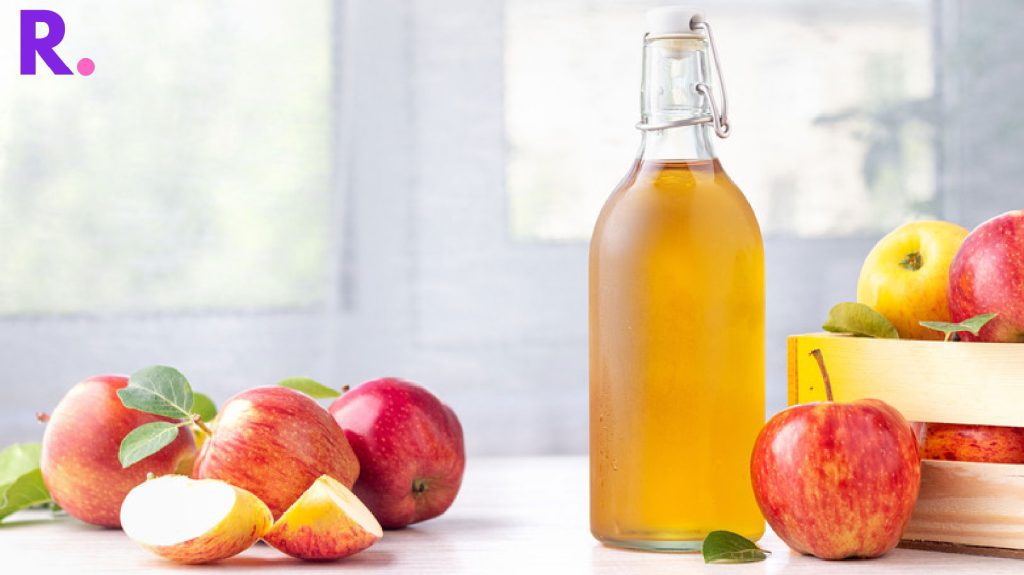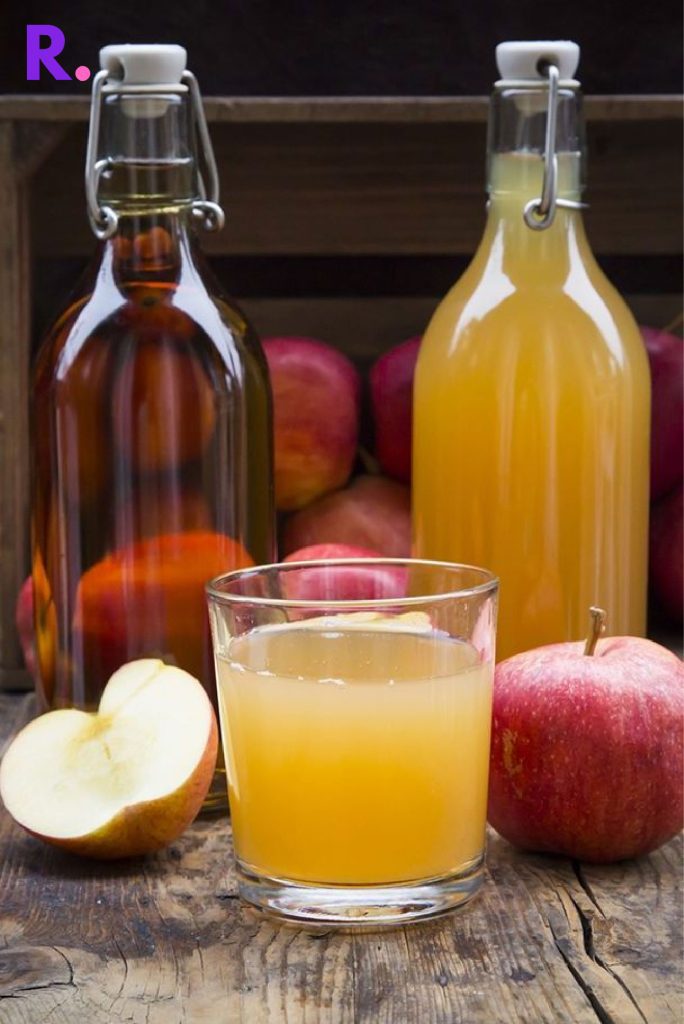Constipation is uncomfortable and frustrating. People use apple juice as a natural remedy for constipation. This guide explores how apple juice relieves constipation. It also covers apple cider vinegar, apple prune juice, and if it’s safe for infants. We will provide expert insights, scientific evidence, and practical advice to help you understand if apple juice helps with constipation.
Can Apple Juice Help Constipation?
Constipation causes infrequent bowel movements, difficulty passing stool, and discomfort. Various factors can cause it, such as dietary choices, lack of fiber, dehydration, and certain medical conditions. Many people choose apple juice as a natural remedy for constipation instead of over-the-counter laxatives.

Is Apple Juice Good for Constipation?
The Fiber Content in Apple Juice
People consider apple juice a remedy for constipation because it has loads of fiber. Apples are the primary ingredient in apple juice. They are rich in dietary fiber, especially pectin, a soluble fiber. Fiber promotes regular bowel movements. It adds bulk to the stool and makes it easier to pass.
Hydration and Constipation
Dehydration causes constipation. Drinking fluids is necessary for healthy bowel function. Apple juice is a refreshing fluid. Adequate hydration can soften the stool and make it easier to pass through the digestive tract.
Nutrient Content
Apple juice has vitamin C and potassium. These nutrients support digestive health. They may help alleviate constipation.
You can also read: Apple Cider Vinegar and Cranberry Juice: The Perfect Detox Drink

Is Apple Juice a Laxative?
Understanding Laxatives
Laxatives promote bowel movements and relieve constipation. They increase stool bulk, soften the stool, and stimulate the muscles of the intestines. Some laxatives are over-the-counter or prescription, while others are natural, like apple juice.
Apple Juice as a Mild Laxative
Apple juice is a mild natural laxative because it has a good amount of fiber. Dietary fiber and fluids soften and bulk up the stool, making it easier to pass. It is less potent than over-the-counter laxative products.
Can Apple Juice Help with Constipation?
Anecdotal Evidence
Individuals report relief from constipation after drinking apple juice. Apple juice may stimulate bowel movements and relieve discomfort.
The Role of Sorbitol
Apple juice contains sorbitol, a natural sugar alcohol. Sorbitol draws water into the intestines, softens the stool, and promotes bowel movements. This property helps relieve constipation with apple juice.

Apple Juice Laxative – How It Works
Mechanism of Action
To better understand how apple juice can function as a laxative, it’s essential to delve into its mechanism of action. When you consume apple juice:
- Apple juice prevents dehydration and helps with constipation.
- Apple juice contains dietary fiber, specifically pectin, which softens and facilitates easier passage of stool.
- Sorbitol is a sugar alcohol found in apple juice. It can draw water into the intestines, soften the stool, and promote bowel movements.
These effects help with mild constipation. Severe constipation needs stronger laxatives.
Apple Juice and Constipation – How to Use It
Here’s an effective apple juice constipation cure! Use apple juice to alleviate constipation with these tips:
- Choose 100% pure apple juice. Opt for no added sugars or artificial ingredients.
- Apple juice can help, but too much can cause diarrhea because of sorbitol. Consume it moderately.
- Stay hydrated by drinking lots of water and apple juice.
- Complement your apple juice with a fiber-rich diet for better digestion.
- Regular exercise helps alleviate constipation by promoting bowel motility.
Apple Juice for Infants – Safety and Guidelines
Introduction to Infant Constipation
Infants can also experience constipation, which can be distressing for both the child and parents. When it comes to using apple juice for infants, there are specific considerations to keep in mind.
Consultation with a Pediatrician
Before introducing any new food or beverage, including apple juice, to an infant’s diet, it is crucial to consult with a pediatrician. Infants have delicate digestive systems, and their dietary needs differ from those of adults.
Age Recommendations
Pediatricians may recommend introducing small amounts of diluted apple juice to infants over six months old who are experiencing constipation. Dilution is essential to avoid overloading an infant’s system with sugars.
Dilution Guidelines
Typically, apple juice for infants is diluted with water in a 1:1 or 2:1 ratio (water to juice). This dilution reduces the sugar content while providing hydration and mild laxative effects.
Monitoring and Adjustments
Parents should closely monitor their infant’s response to apple juice and be prepared to adjust the dilution ratio or discontinue its use if any adverse effects occur.

Does Apple Cider Vinegar Make You Poop?
The Popularity of Apple Cider Vinegar
ACV is popular for treating constipation and bloating. Does it help with bowel movements?
Acetic Acid and Digestive Health
ACV contains acetic acid. Some proponents believe it aids digestion and relieves constipation. Acetic acid stimulates digestive juices, improving food breakdown.
Lack of Scientific Evidence
Anecdotal reports suggest benefits, but limited scientific evidence supports ACV’s direct impact on bowel movements. ACV’s effectiveness for constipation varies depending on the cause.
Apple Cider Vinegar and IBS
Understanding Irritable Bowel Syndrome (IBS)
IBS is a gastrointestinal disorder. It causes abdominal pain, bloating, and changes in bowel habits. Individuals with IBS can use apple cider vinegar as a natural remedy.
Potential Benefits
ACV can reduce bloating and improve digestion for IBS. ACV’s acetic acid may soothe the digestive tract’s movement.
Caution with IBS
ACV may relieve IBS symptoms for some, but it may worsen symptoms for others. Approach ACV cautiously if you have IBS. Consult with a healthcare professional before use.
You can also read: Apple Cider Vinegar and Lemon Juice – A combo from Heavens

Does Apple Cider Vinegar Help with Constipation and Bloating?
Addressing Constipation
Similar to its potential effects on general constipation, ACV’s acetic acid content may help stimulate digestion and provide relief from constipation in some individuals. However, its effectiveness varies among individuals.
Reducing Bloating
Bloating is a common complaint for people with gastrointestinal issues. ACV proponents claim that it can reduce bloating by aiding digestion, but scientific evidence on this specific aspect is limited.
Safe Consumption
If you decide to try ACV for constipation or bloating, it’s essential to consume it in moderation and monitor its effects. Some individuals may experience gastrointestinal discomfort when consuming ACV undiluted, so dilution with water is recommended.
Apple Prune Juice – A Natural Constipation Remedy
The Combination of Apples and Prunes
Apple prune juice combines the laxative properties of apples and prunes. Prunes relieve constipation effectively.
Prunes as a Laxative
Prunes have sorbitol, a natural sugar alcohol, like apple juice. Sorbitol softens the stool and promotes bowel movements by drawing water into the intestines.
Benefits of Apple Prune Juice
Apple juice and prune juice can provide a double dose of dietary fiber and sorbitol. This makes it a potent natural remedy for constipation.
Safe Consumption
Moderation is key with any natural remedy. Drinking apple prune juice helps with constipation, but too much can cause diarrhea.
Apple juice helps with constipation because it has fiber, hydrates, and contains sorbitol. It can help with mild constipation as a laxative. Its effectiveness varies among individuals and may not suit everyone. Use apple juice or apple cider vinegar for constipation relief in moderation. Consult with a healthcare professional if you have medical conditions or safety concerns. Diluted apple juice may help infants with constipation. Consult a pediatrician for guidance.
Prioritize a balanced diet, stay hydrated, and exercise regularly for good digestive health. Seek professional medical advice if constipation persists or worsens. This will help rule out any underlying medical conditions and ensure the most appropriate treatment.
You can also take a look at: Top 10 Pink Fruits: A Vibrant Palette of Flavor and Nutrition

FAQ – Frequently Asked Questions
Can I give apple juice to my infant for constipation?
Consult with a healthcare professional before giving diluted apple juice to infants over six months old for constipation.
How much apple juice for constipation?
The recommended amount of apple juice for constipation relief varies based on tolerance and severity. Start with a small glass, around 6-8 ounces. Increase if necessary.
Is Apple Cider Vinegar safe for everyone?
Most individuals can safely consume apple cider vinegar in moderation. Some people may experience digestive discomfort from undiluted ACV. Consult with a healthcare provider, especially if you have underlying health conditions.
Can I use apple prune juice for chronic constipation?
Apple prune juice relieves occasional constipation effectively. Consult with a healthcare professional for chronic constipation. Address underlying causes and determine treatment plan.
Does apple juice cause diarrhea?
Excessive consumption of apple juice can cause diarrhea in some people. Consume apple juice in moderation to avoid potential side effects.
Can apple cider vinegar relieve long-term constipation?
Do not use apple cider vinegar for constipation relief long-term without medical supervision. Explore other dietary and lifestyle changes.
Does apple cider vinegar have side effects for IBS?
Individuals with IBS may be sensitive to acidic foods and beverages. Apple Cider Vinegar IBS symptoms are common. Consult with a healthcare provider before using ACV for IBS. Ensure it’s suitable for your condition.











